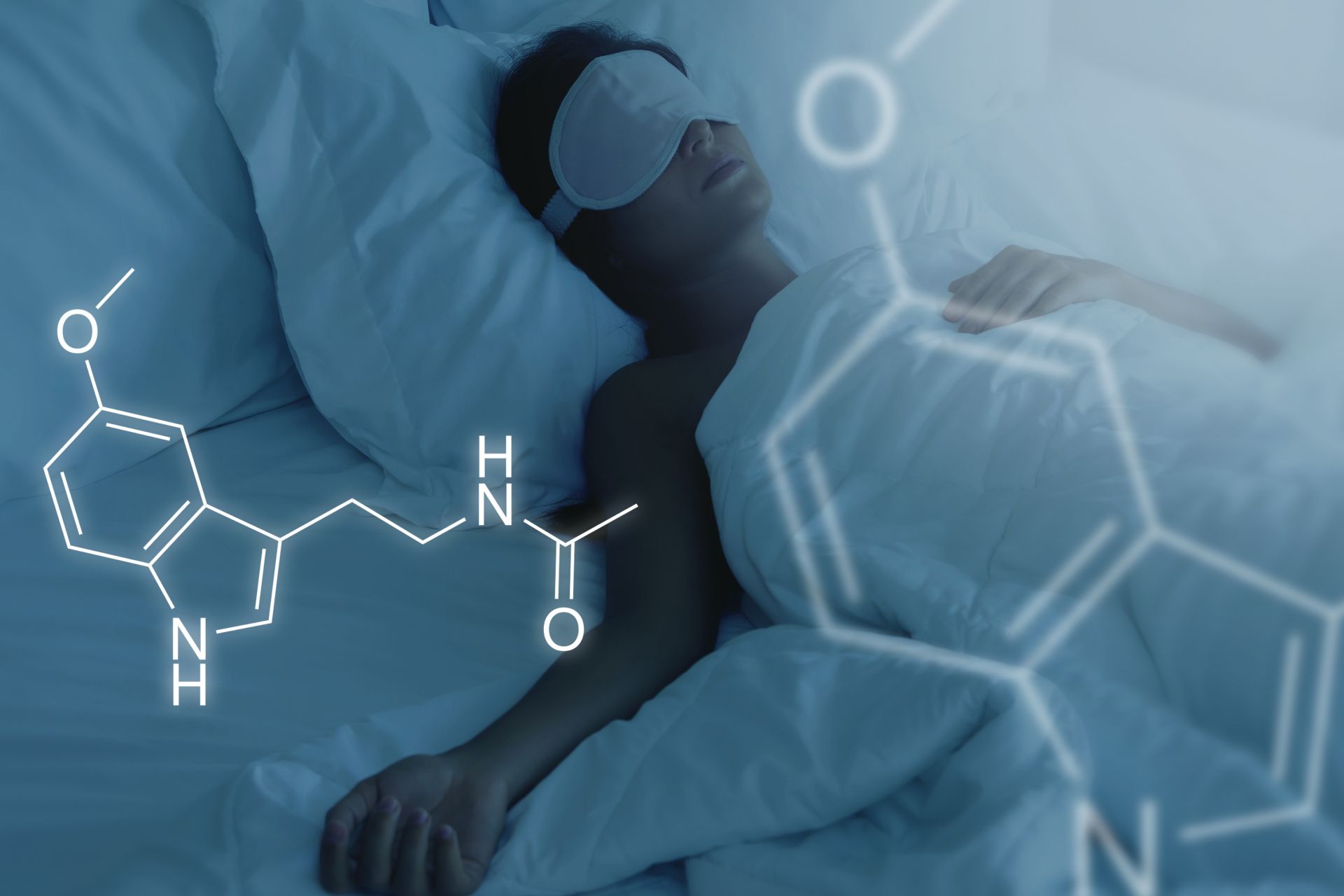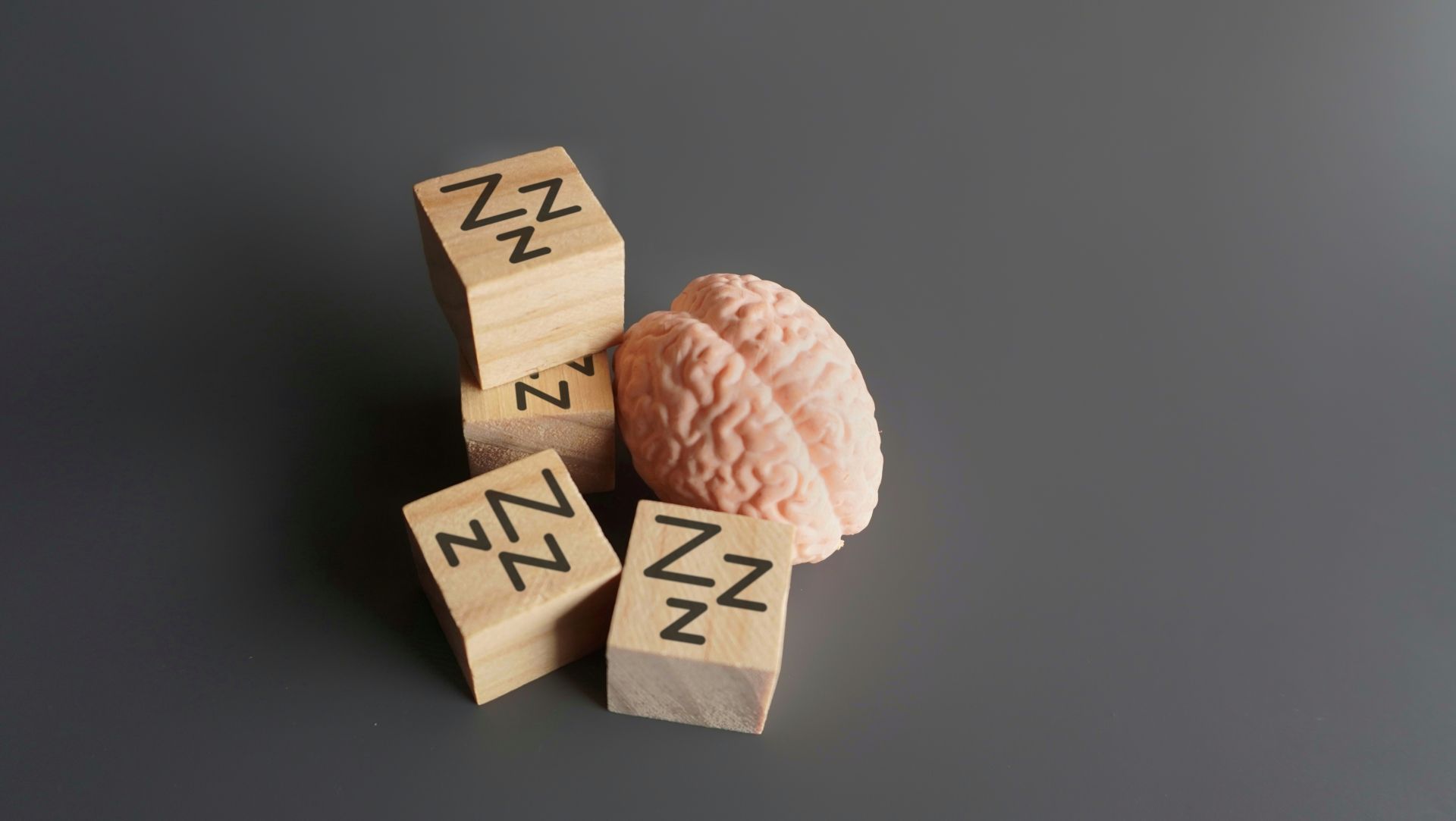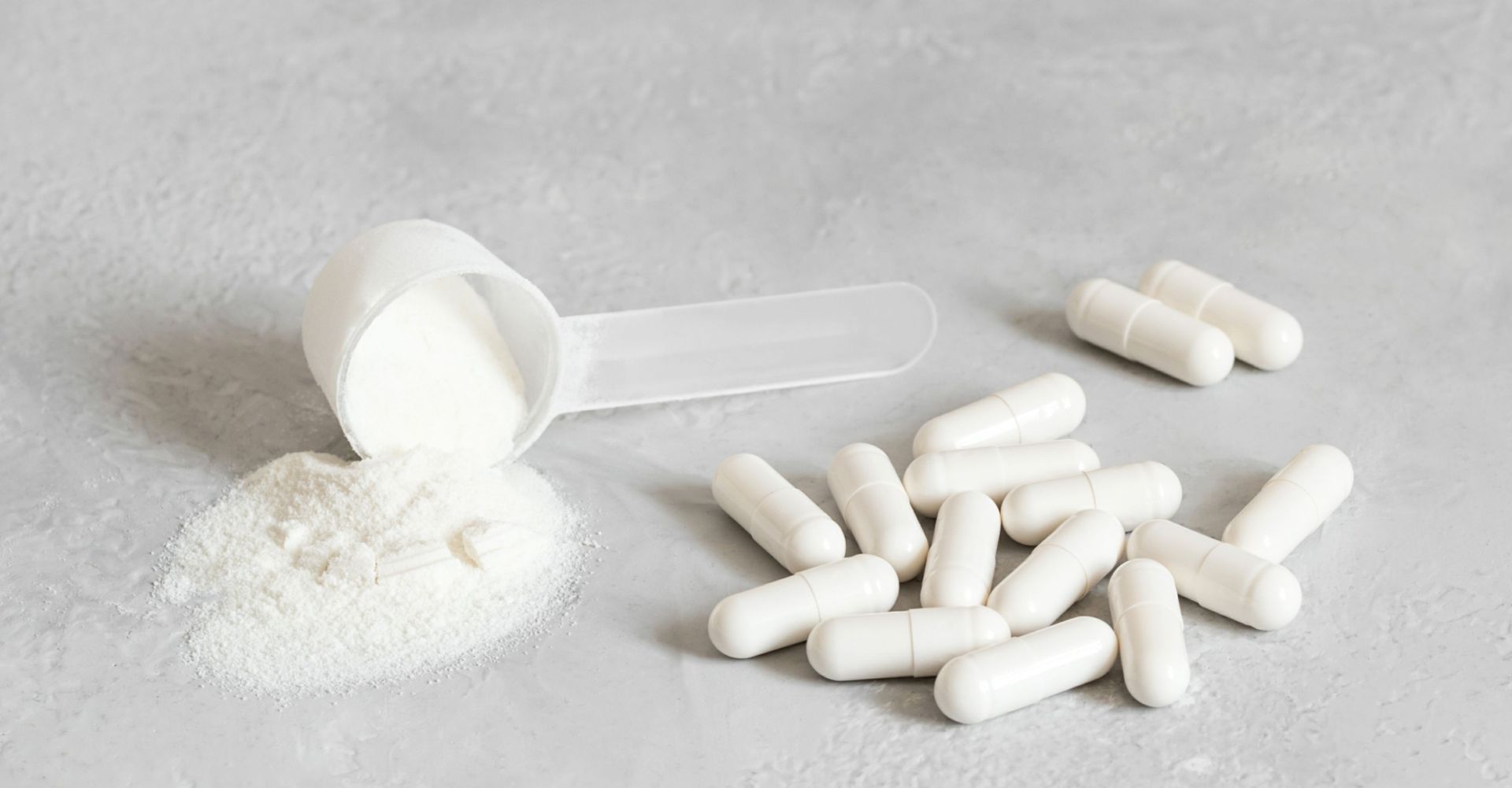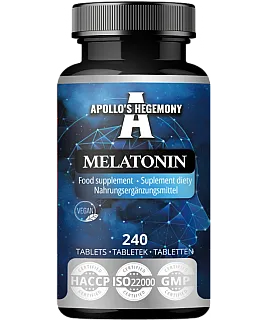Melatonin - what is it and what are its properties?

Sleep is fundamental to a person's emotional and physical health. Insufficient sleep is a strong risk factor for obesity, diabetes, heart disease and depression. And what do we need for quality sleep? Melatonin!
Melatonin supplements are a very popular way to improve sleep quality. It is worth knowing what melatonin is, how it works and what properties it has for humans before you start supplementing it. From this article, you will learn the most important details about how melatonin works. Read to the end!
- What is melatonin?
- How is melatonin produced?
- What impedes melatonin production?
- Properties of melatonin
- Dosage of melatonin in supplements
- Sources of melatonin
What is melatonin?
Melatonin is an endogenous hormone of the pineal gland. It is also one of the most important sleep regulators, which is why it is colloquially known as the sleep hormone. Its production is strongly coupled to the biological diurnal rhythm - it is intensively released at night, with a pause during the bright part of the day. It is also partially involved in regulating longer seasonal rhythms.
It was originally discovered as a skin-lightening molecule, acting on the melanocytes of frogs and fish. It was isolated from the bovine pineal gland in 1958 by Aaron Lerner. Extrasynaptic sources of melatonin have been reported in the retina, bone marrow cells, platelets, skin, lymphocytes, Harder's gland, cerebellum, and the gastrointestinal tract of vertebrates. The spectrum of currently known biological effects of melatonin far exceeds the original discoveries.
Melatonin's biological effects are mediated through the activation of melatonin receptors MT1, MT2 and MT3. Their occurrence has been noted in more than 110 structures in the brain, but there is considerable variation in receptor density. Of all the structures in the human body, the highest density of melatonin receptors is in the pituitary gland. Melatonin receptors are also located in various peripheral tissues, which explains many of the effects noted in studies on immunity, sex hormone metabolism, and blood circulation, among others.
In practice, melatonin in capsule or tablet form is used as part of supplementation to help regulate sleep and wakefulness rhythms. Melatonin supplementation is used, for example, to combat jet lag when changing time zones, in shift workers, or to speed up falling asleep in people who, for various reasons, have problems with this.
How is melatonin produced?
Melatonin is produced by the pineal gland, and its production is regulated by photoperiodic stimuli transmitted from the retina via the endogenous circadian oscillator in the suprachiasmatic nucleus of the hypothalamus. Sound complicated? Well, it's simpler: melatonin is produced by a tiny structure deep in the brain in a way that depends on the availability of light.
Under normal conditions, melatonin begins to be produced about 2 hours before bedtime. Peak levels are reached after about 5 hours.
It is produced from the amino acid tryptophan, but not in a direct manner. The main melatonin biosynthetic pathway involves, in any organism or cell type studied, 5-hydroxylation, decarboxylation, N-acetylation and O-methylation of tryptophan, in that order.
In brief, the melatonin synthesis pathway can be presented as follows:
L-tryptophan → 5-hydroxytryptophan → serotonin → N-acetylserotonin → melatonin
Interesting fact: Melatonin is produced by all animals and more. It is also produced by bacteria, protozoa, plants and fungi.
What impedes melatonin production?
In practical terms, the right conditions are needed for efficient melatonin synthesis. The most important of these is the availability of light, or rather the lack of it. After sunset, when it's nearing bedtime, far less light, especially its blue wavelengths, should enter our eyes. This is the most important signal that initiates the production of the sleep hormone. The development of civilization and the widespread use of artificial lighting sabotage this natural process. Therefore, it is important to use lighting in the evenings judiciously. The later the hour, the lower the intensity of the light should be, and its color should be warmer (so light that is more yellow than white).
Caffeine supply at too late an hour is also very problematic. Caffeine residue circulating in the bloodstream can delay the secretion of melatonin, thus making it difficult to fall asleep and worsening the quality of sleep. To maintain good melatonin production, one must be careful not to drink caffeinated beverages too late. This applies not only to coffee, but also to tea, cola and other drinks that have caffeine added to them. What time is too late? Unfortunately, it's hard to point to a universal limit, since the rate of caffeine metabolism can vary widely depending on genetic predisposition.
Properties of melatonin
Melatonin affects many aspects of health, indirectly by improving sleep and directly by interacting with its receptors. An important part of melatonin's action is its strong antioxidant properties, which contributes to the enormity of its protective effects. Let's do a little review of the most important properties for which melatonin has a documented effect.
Effects on sleep
Sleep regulation is the most obvious property of melatonin. Rhythmic changes in melatonin release are fundamental to the regulation of circadian cycles, precisely by regulating sleep.
According to research findings, melatonin supplementation is a safe and effective method of improving the speed of falling asleep and the quality and duration of sleep. Studies show that melatonin can support many different aspects of sleep. For example, it has some benefit in respiratory disorders during sleep, such as sleep apnea, or in reducing the annoying symptoms of parasomnia.
Melatonin is particularly useful in cases where the diurnal cycle is disrupted, such as when traveling across several time zones or when working shifts.

Effects on recovery
A good night's sleep means good recovery, right? Melatonin, by reducing the time it takes to fall asleep, can increase total sleep time. Besides, it affects the regulation of sleep architecture, correcting the distribution of its different phases (REM and non-REM). The overall effect of melatonin is to simply get a better night's sleep. This, in turn, results in a fresher mind and less fatigue and daytime sleepiness.
Effects on immunity
Sleep deprivation can worsen resistance to infection - this is common knowledge. Melatonin, or rather its deficiency, has a part in this. Melatonin has immunostimulatory and immunomodulatory effects. Studies show the extensive effect of melatonin on the activity of immune cells, cytokines, etc. This makes possible an increase in resistance to infection, but also useful effects, for example, in autoimmunity or the prevention of tumorigenesis.
Effects on stress
Mainly preclinical studies, but also a few human trials point to the anti-stress effects of melatonin. The idea here is, among other things, that when melatonin reduces the severity of sleep disorders, the consequences of these disorders, such as a decline in the quality of social and professional life, will also be reduced. The reduction in stress was noted both in biochemical parameters and in questionnaires completed by study participants.
There is also a more biochemical basis to this issue. Stress has an immunosuppressive effect - it simply suppresses immunity. There are many indications that melatonin can alleviate this effect. When we have adequate availability of melatonin during intense stress, it can mitigate the immunosuppressive effects of stress and help maintain an optimal barrier against infections.
Dosage of melatonin in supplements
About 300 mcg, or 0.3 mg, is considered the physiological dose. European authorities consider 0.5 mg to be the minimum dose of benefit. In practice, however, most supplements have doses of 1 or 3 mg of melatonin. However, there are some products with mega-doses, containing 5 or even 10 mg of melatonin per serving. These extreme examples mainly involve products from the US.
In practice, the amount of 1 mg usually turns out to be optimal for the average person. If raising the dose to 3 mg doesn't do anything, then increasing the dosage further probably doesn't make sense.
Sources of melatonin
In addition to the body's own production and dietary supplements, melatonin can also be found in foods. The best-known sources of melatonin recommended for consumption before bed are kiwi fruit and tart cherry juice. Both foods have research-documented beneficial effects on falling asleep and sleep quality, which is mainly linked to their melatonin content.
It's also interesting to note that mothers pass melatonin to their babies in their milk. Milk produced at different times of the day has different melatonin content, so breastfeeding may give a baby a slightly better night's sleep.
Sources:
 ⮜ Previous article
⮜ Previous article
How does Rhodiola rosea work? Learn about its properties!
 Next article ⮞
Next article ⮞


